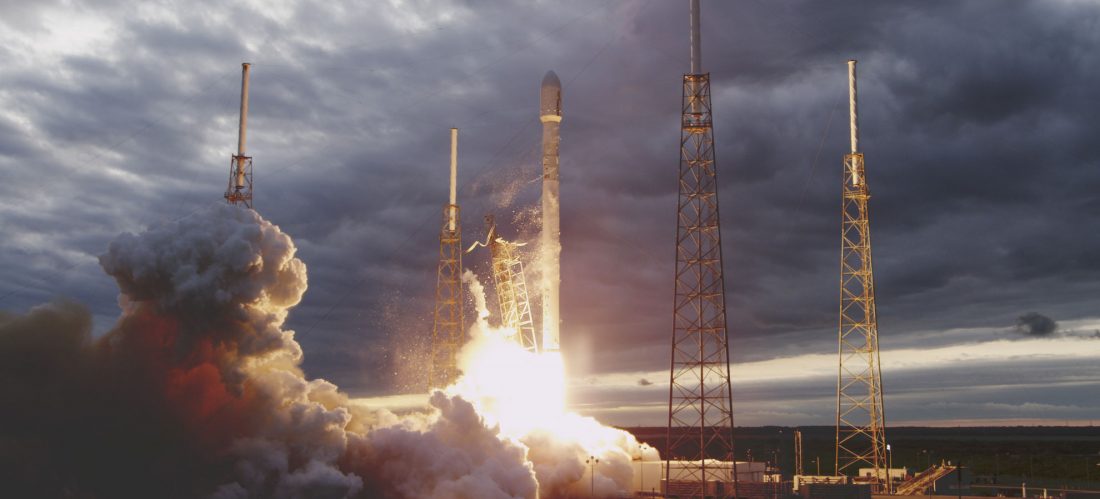SpaceX Will Send A Tesla Roadster To Mars In The Falcon Heavy

Elon Musk has said that the first flight of SpaceX’s Falcon Heavy rocket will be used to send a Tesla Roadster into space.
Payload will be my midnight cherry Tesla Roadster playing Space Oddity. Destination is Mars orbit. Will be in deep space for a billion years or so if it doesn’t blow up on ascent.
— Elon Musk (@elonmusk) December 2, 2017
Elon Musk took Twitter to share this idea and later confirmed in an interview that it his plan to send a Tesla Roadster to Mars in the Falcon Heavy. The tweet has reference to the famous David Bowie song, Space Oddity. It is yet to be seen if the company has taken all the necessary permissions required to launch a car into the space.
Considering trying to bring upper stage back on Falcon Heavy demo flight for full reusability. Odds of success low, but maybe worth a shot.
— Elon Musk (@elonmusk) March 31, 2017
Falcon Heavy is the successor to SpaceX’s Falcon 9. It is supposed to be a more powerful rocket that the SpaceX plans to use for missions to the Moon and Mars. The first flight for Falcon Heavy was scheduled to take off in 2013 or 2014 but, it has been confirmed that the highly anticipated flight will take off in January 2018.
Falcon Heavy is three Falcon 9 rockets strapped together. Therefore, the Falcon Heavy will be capable of creating around three times the thrust of a single Falcon 9 rocket, allowing SpaceX to perform missions beyond low Earth orbit.

14th Falcon 9 Take Off
Elon Musk has also expressed his desire to launch an even bigger rocket in the future. Earlier this year, at the International Astronautical Congress, Musk said that he plans to pour all of SpaceX’s resources into an even bigger rocket architecture, known as the Interplanetary Transport System.
The Interplanetary Transport System will ultimately take over the Falcon Heavy and make it redundant. It will be capable of taking on the same duties, while adding new capabilities like planting a colony on Mars to making 30-minute transcontinental travel possible on Earth.
























